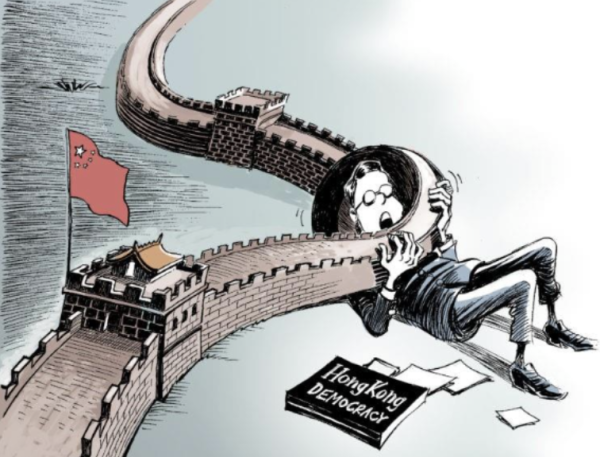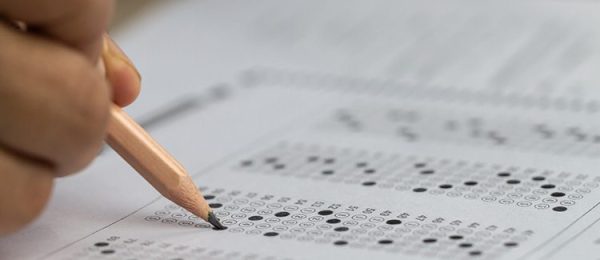What We Failed to Learn From 2020
I will be the first to say that the 2020-2021 school year was far from ideal. Many people found it extremely difficult to learn and stay focused on their lessons as a result of the hybrid school model. However, there were several new ideas tried out during this period that greatly improved students’ quality of life and, in numerous ways, revolutionized how we learn. We have nonetheless tossed this Renaissance of ideas into the trash and reverted into the educational Dark Ages once again. I have set out in writing this piece to advocate that we step back into the light.
Firstly, I will address the least defensible policy which has been reversed—the attendance policy for sick students. During last school year, as was logical, students who were sick were allowed to attend their classes from home on Zoom until they tested negative for COVID-19 and felt better. This year, that policy no longer exists. While students can still stay at home if they are sick, there are significantly more hoops to jump through, and students are no longer able to attend their classes virtually. This policy not so tacitly pressures students to come into school, even if they’re feeling under the weather, which is extremely dangerous and destructive. It means that students who could potentially have COVID or another highly transmissible disease may come into school in order to avoid missing large amounts of work, which they would struggle to make up. There is no defense for this policy; It will undoubtedly lead to higher rates of COVID. The administration will state that teachers no longer want to use Zoom or other remote learning tools and as a result, allowing students to attend class remotely is not feasible. But in my opinion, that is just an excuse. Teachers could, with limited difficulty, record their lessons and upload them to Schoology for students that are absent. In fact, I am already aware of a few teachers who employ this tactic with great success. Additionally, not only does it benefit sick students, but it allows all students to review materials before exams. The only other argument the district could possibly use is that it would allow students to abuse this policy in order to stay home. However, I believe, without a doubt, that the administration is more than competent enough to set a maximum number of sick days or make some other kind of rule in order to avoid this. Overall, I believe more options need to be introduced immediately in order to allow students to stay at home if they believe they are sick without endangering other students.
Secondly, I will address the withdrawal from the use of computers in class. While our school-issued laptops can certainly be a distraction and are not necessary in some classes or at certain moments, I feel that many teachers have entirely removed them from their lessons. This unnecessarily burdens students with having to take notes and work with paper handouts, when digital copies are much more environmentally friendly and in many cases allow the students to work quicker and neater. Additionally, more dynamic learning resources, such as interactive assignments, videos and more can be quickly integrated into the day’s lesson plan. For instance, I am currently enrolled in AP U.S. History, and in that class, the AP exam is going to be taken on paper, meaning that I will have to write an extraordinary amount by hand in a short period of time. Yet, in my AP English Literature class, we are going to be doing the exam digitally. In my opinion, there is absolutely no downside to administering AP exams digitally. I am empathetic to the concerns of many teachers that digital devices make it much easier for students to cheat on the exam, but I believe that the combination of using the lockdown browser and having students sit for the exam in the school virtually eliminate these concerns. As any student who has taken an AP exam knows, the lockdown browser is extremely militant with monitoring you and makes it impossible for you to use your laptop for anything besides taking the exam. When students are taking the exam in the building, proctors can also monitor and prevent the usage of phones and other digital devices, fully eliminating the risk of cheating. For these reasons, I believe the only logical choice is to have AP exams be administered in this manner, in order to prevent students from being unnecessarily strained by having to write thousands of words by hand for multiple days in a row in May. Furthermore, by allowing students to type out their responses, the school will encourage more developed and thought-out responses, thus raising the average test score.
Finally, I will address some of the issues I believe the school is not properly addressing during this academic year. Based on my experience and the experiences of many that I know, this year, particularly for upperclassmen, has been extraordinarily difficult due to the loss of learning experienced last year. While students were still able to grasp many of the major concepts, several of the more nuanced and in-depth subjects were not covered due to the structure of in-person and online school. As a result of this, numerous students are finding themselves behind in their courses as they didn’t obtain some of the prior knowledge necessary for their classes. I am in no way advocating that curriculum should be watered down this year or modified to be easier to understand; That will only push the problem forward another year. Instead, I believe that more instruction time needs to be focused on what is assumed to be prior knowledge from last school year. When teachers do not do this, it causes students to have to teach themselves the material from last year before they can even begin to study the current material. What I have seen from several teachers is the mindset that students can easily handle this task and get themselves up to speed. These thoughts are not incorrect in isolation but fall apart in practice. Sure, if you have a student who only needs to study one course, they can handle this additional workload. But take a student who has seven courses on their schedule. Asking them to study double the material for all seven of those courses will topple the delicate house of cards that many students must balance and cause them to fall hopelessly behind. In summary, I believe that teachers need to be more conscious of the level of understanding which students bring with them to this school year and make the necessary adjustments to the curriculum.
To conclude, I am writing this piece in order to bring some of the issues facing students this year to light and to highlight that they are problems for which we already have solutions. It’s the equivalent of having a car in your garage but deciding to take your horse to work instead. I believe that teachers and the administration need to understand that we made progress last year. We came up with innovative solutions to the issues created by COVID-19, solutions which in many ways made our school a place better suited for learning. Yet, instead of adapting and embracing these changes, we have turned our backs on them. I encourage all readers of this piece to go out and ask their teachers to incorporate some of the changes highlighted above. At the end of the day, the greatest goal of a teacher, and of a school, should be to do everything possible to help students learn to their fullest potential, something we have strayed away from as of late.











